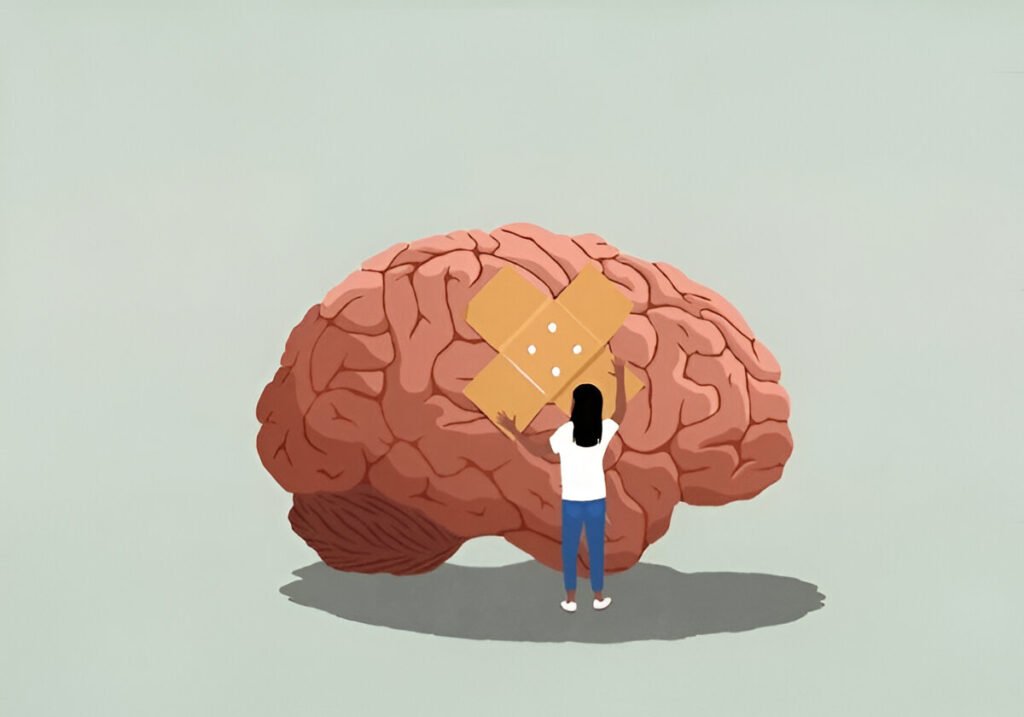
When we hear the word older, most people imagine wrinkles, grey hair, and perhaps creaky joints. But have you ever considered how age impacts your brain?
A shocking study by the University of California, San Francisco (UCSF) is revealing this in a new light. Researchers have discovered that bad sleep may actually accelerate brain aging and even make your brain shrink over time.
It’s no surprise that sleep is essential, but this latest research suggests the effect of our evening sleep could extend much deeper than we know. The habits you practice tonight might be shaping your brain’s future health in silence.
What Researchers Found Out about Sleeping and Brain Size
It has been a long-time puzzle for scientists to understand why our brains actually shrink as we age. Some degree of brain atrophy is normal, but this new study published in Neurology in 2024 suggests there might be an unexpected culprit behind accelerated brain aging: poor sleep.
The team at UCSF followed around 600 adults over a ten-year period. They asked participants about their sleep patterns and then performed brain scans a decade later. The results were startling. People who reported regular sleep troubles ended up with brains that looked between 1.6 and 2.6 years older than those who slept well.
Even after adjusting for other factors like age, sex, education, and lifestyle, the strong connection between poor sleep and brain shrinkage remained. This implies that not getting quality sleep may independently contribute to accelerating the brain’s aging process.
Is It the Sleep or the Brain?
Although the findings are compelling, they do pose a sticky question: is bad sleep shrinking the brain, or might a shrinking brain be interfering with our sleep?
Experts are still debating this. According to Clémence Cavaillès, PhD, from UCSF’s Department of Psychiatry and Behavioral Sciences, while the study doesn’t prove a direct cause-and-effect relationship, it does add to a growing body of research connecting bad sleep with cognitive problems, including dementia.
Previous research has already established that lack of sleep can damage memory, mood, and concentration. But now that the notion that bad sleep can actually alter the brain’s structure makes it even more alarming,

Why Good Sleep Could Be the Best Brain Investment You Can Make
So what does this mean for us? In simple terms, taking care of your sleep today might help you protect your brain for years to come.
Dr. Kristine Yaffe, the study’s senior author, highlighted how critical it is to start building good sleep habits early. Brain aging doesn’t happen overnight. It’s a slow process, meaning the choices you make now could have a huge impact on your cognitive health later.
The good news is, sleep is something we can actually improve with small, consistent changes, unlike things like genetics, which we can’t control.
Easy Ways to Improve Your Sleep and Shield Your Brain
If you’re looking to give your brain a little extra protection, here are some simple tips that can help:
Staying on a regular sleeping schedule can make all the difference, so attempt to go to sleep and wake up at the same time daily, even on Saturdays. Setting up the right atmosphere is equally important; keep your bedroom cold, dark, and as silent as possible to enhance deeper and rejuvenating sleep. It also helps to lower the use of screens by avoiding the usage of phones, tablets, and laptops at least an hour before bedtime to give your brain sufficient time to wind down naturally.
Be mindful of caffeine intake by not taking coffee, tea, or energy drinks in the latter half of the day since they can interfere with your ability to sleep. Lastly, stress relief through deep breathing techniques, meditation, or gentle stretching can calm your mind and prepare your body for a restful night’s sleep.
Even these small changes, if practiced regularly, might have a significant impact over time.
Final Thoughts: Don’t Sleep on Sleep
The message from this latest UCSF study is straightforward but strong: poor sleep doesn’t only make you sleepy; it may be accelerating brain aging more than you know.
Although researchers are continuing to unearth the specifics, there’s already sufficient evidence to treat sleep as one of the strongest pillars of health. Valuing greater sleep sooner might result in a sharper brain, enhanced memory, and improved cognitive skills in the future.
So tonight, when you get into bed, consider it doing more than just getting some rest. You’re investing in yourself down the line, one good night’s sleep at a time.







